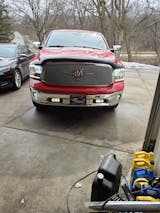How do you know when your car's transmission has failed?
If you are like many people, you probably own a vehicle. Whether it's a practical or economical car, you need to take good care of it to ensure everyone's safety on the road and to avoid a variety of problems.
You know that depending on the age and mileage of your vehicle, you need to perform regular maintenance. Among the main mechanical components of a vehicle, the transmission plays an important role in keeping it running smoothly.
We'll answer all your transmission questions and take a closer look at the symptoms of a faulty transmission to save you a lot of trouble.
What are the signs of a transmission problem?
There are many signs that your vehicle's transmission may be faulty. The most common are
Weird noises
If you hear strange noises such as buzzing, grinding or whining that persist and sound like they're coming from your engine, they may be coming from your vehicle's faulty transmission.
Smell
If you've ever smelled something burning while driving, it's never a good sign. Your transmission may be overheating.
Transmission Fluid Leak
Transmission fluid leaks are easy to spot and a major obstacle to your car's smooth running. This bright red fluid, which lubricates the gears and other mechanical parts, cannot be burned off by the operation of the vehicle. Check its level regularly to make sure there are no leaks and that its color is not dark.
Check engine light on
If you see the check engine light on, it could be an indicator of a transmission problem, especially if you've noticed other faults.
Shaking
If you feel your vehicle shudder or jerk when you change gears, when the transition should be smooth, it's a sign that you may have a transmission problem.
An impossible gear change
In a manual transmission vehicle, you can't shift, feel a block, or have great difficulty shifting.
Loss of power or responsiveness
If your vehicle has difficulty accelerating, loses power, or seems less responsive than before, it may be related to a transmission problem.
Gear Slip
What is gear slip? Gear slip occurs when your vehicle disengages the clutch and shifts back into neutral on its own.

Preventive measures to avoid costly repairs
1. Regular Transmission Maintenance
Preventive maintenance is essential to extend the life of your transmission. Be sure to follow the manufacturer's recommendations for draining and replacing transmission fluid and maintaining filters.
2. Listen to your vehicle
Listen carefully to your vehicle and be aware of the signs of transmission problems listed above. The sooner you detect a problem, the more likely it is to be corrected before costly repairs are required.
3. Avoid Overloading and Aggressive Driving
Avoid overloading your vehicle beyond the recommended load capacity. Also avoid aggressive driving, such as harsh starting and braking, which can stress the transmission.
When should I service the transmission?
Because a faulty transmission can put you at risk, you should have your vehicle's transmission inspected and repaired as soon as possible. The longer you wait, the greater the risk that the problem will get worse. The same goes for the risk of a car accident!
That's why it's important to take good care of your transmission. Have the fluid changed regularly, and take your car in for service or repair as soon as you notice any problems with your transmission.
Conclusion
A troubled transmission can quickly become a financial nightmare if not addressed in time. By learning to recognize the signs of a transmission problem and following preventive measures, you can avoid costly repairs and extend the life of your vehicle.
Featured Products
- $479.99
$499.99- $479.99
- Unit price
- / per
- $549.99
$559.99- $549.99
- Unit price
- / per
- $489.99
- $489.99
- Unit price
- / per
- $469.99
$489.67- $469.99
- Unit price
- / per




















